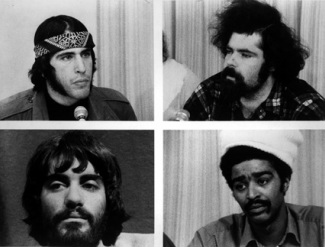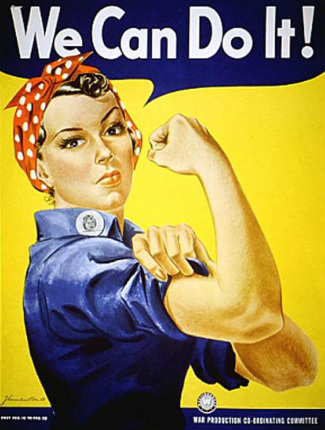 Tags: immigration/citizenship, nationalism, politics/election/voting, prejudice/discrimination, race/ethnicity, social mvmts/social change/resistance, assimilation, boundary work, imagined communities, nation, tea party, 21 to 60 mins Year: 2010 Length: 23:19 Access: YouTube Summary: This clip is a short news documentary from Al Jazeera's Fault Line and features Josh Rushing's reporting on Arizona's new immigration law, known as Senate Bill 1070 (SB 1070). The new law specifies that it is a misdemeanor crime for an alien to be in Arizona without carrying registration documents, leading critics to charge that the law effectively codifies racial profiling. Rushing interviews, Arizona State Senator, Russell Pearce, Tea Party protesters, undocumented residents, and members of local law enforcement for the piece. In addition to being informative about issues regarding immigration and citizenship, the clip might be useful for illustrating the continuing relevance of nationalism and how nationalist ideologies incite people to action. At about 6:18, Rushing notes how people feel "victimized, as if the immigrants are taking something from them." The clip also provocatively connects politics with the economy and suggests that illegal immigration is a convenient scapegoat handed to people who have been hit particularly hard by the recent recession. Submitted By: Lester Andrist
2 Comments
 Glenn Beck and other television personalities use rape metaphors Tags: gender, intersectionality, media, nationalism, rape, masculinity, femininity, subtitles/CC, 00 to 05 mins Year: 2009 Length: 2:15 Access: YouTube Summary: This remix features conservative commentators such as Rush Limbaugh, Glenn Beck, and Michael Savage employing rape metaphors when discussing various political policies. A number of references in the remix rhetorically position women as the victims of rape and unscrupulous men as the rapists. Thus the clip can be used to underscore the way gendered violence is often keyed to a host of political issues in order to provoke the public or suggest a greater sense of urgency. Taking the analysis a step further, one can trace symbolic intersections between gender and nation, as when Rush Limbaugh suggests that his listeners are being "gang raped" by the Democrats. Here Limbaugh's listeners represent the nation and the Democratic Party becomes the assailant. In another example, Michael Savage remarks that "The Statue of Liberty is crying; she's been raped and disheveled...by illegal aliens...How about missing country and the rape of a nation." By suggesting the Statue of Liberty is a victim of rape and undocumented immigrants are the assailants, commentators are able to connect gender violence to nation, thereby shoring up the basis for their outrage. "This is no longer about the tragedy of an individual," the commentators seem to be saying, "it is instead an attack against the American community." The video can be useful to illustrate the way nation and gender are constitutive of each other and how these two dimensions often work together to give meaning and urgency to political issues. Submitted By: Lester Andrist  Tags: discourse/language, immigration/citizenship, nationalism, politics/election/voting, prejudice/discrimination, assimilation, boundary work, imagined communities, nation, 00 to 05 mins Year: 2010 Length: 0:33 Access: YouTube Summary: This clip is a campaign ad for Tim James, the republican candidate for Governor of Alabama. The candidate notes that currently Alabama offers drivers license tests in 12 languages, and as governor, he will push to have the test given only in English. Although the candidate suggests this proposal is spurred by good business sense, one could argue that the ad is a thinly veiled attack on recent immigrants to the United States. Note that the caption under the YouTube clip mentions that the issue is important for "Republican voters who are deeply concerned about..illegal aliens." The clip can be useful for demonstrating contemporary concerns about assimilation in the United States. It may also be useful for instructors who are drawing from Anderson's Imagined Communities and want to communicate the different styles by which communities are imagined. The United States has often been imagined as an immigrant nation, but here one sees a move to imagine people who don't speak English as their first language as outsiders. Submitted By: Lester Andrist  Four veterans testify about rape & murder during the Vietnam War Four veterans testify about rape & murder during the Vietnam War Tags: gender, nationalism, violence, war/military, masculinity, rape, war rape, 00 to 05 mins Year: 2007 Length: 3:01 Access: YouTube Summary: This clip features testimony from the Vietnam Veterans Against the War's Winter Soldier Hearing. The clip was taken from "Vietnam: American Holocaust." (See the whole 81 minute feature at LinuxBeach.org). The testimony offered in this clip from soldiers of the Vietnam War is useful for promoting discussion about men perpetrating sexual violence against women during times of war. I frame the clip, not as a psychological phenomenon, but as a sociological one, where women are raped because they signify the nation. Testimonies in the clip recount instances of American soldiers raping Vietnamese women, and in this way the clip counters the nationalist myth that American soldiers have not raped women during times of war. A related clip on The Sociological Cinema (here) comes out of the ongoing conflict in Libya and features footage of a Libyan woman, who was forcibly removed from a Tripoli hotel after she attempted to report her rape by soldiers. Submitted By: Lester Andrist  Tags: gender, intersectionality, nationalism, prejudice/discrimination, race/ethnicity, social mvmts/social change/resistance, war/military, employment discrimination, racism, representation, sexism, wwII, women's labor force participation, 21 to 60 mins Year: 1988 Length: 54:00; 1:56 Access: no online access; Vimeo preview Summary: This film was first broadcast as an episode of the television program "The American Experience" on Nov. 1, 1988. The film explores the large scale entrance of American women into the paid labor force during World War II in order to fill positions abandoned by American men fighting abroad. The film documents the experiences of women on the American home front during the war. These women talk about empowerment through greater earning power, but also through challenging dominant ideas about the division between masculinity and femininity. The empowerment thesis is challenged by the fact that once the war was over and the soldiers returned home, women were largely asked to leave their jobs and assume their prewar status as homemakers. The film would work well in a class on the sociology of gender, especially as a means of stimulating discussion about the theoretical notion of intersectionality. Gender, race, and nationalism vividly intersect throughout the film. Submitted By: Lester Andrist |
Tags
All
.
Got any videos?
Are you finding useful videos for your classes? Do you have good videos you use in your own classes? Please consider submitting your videos here and helping us build our database!
|
 RSS Feed
RSS Feed
